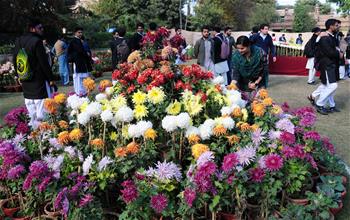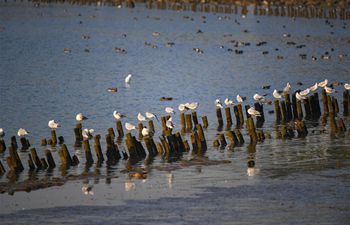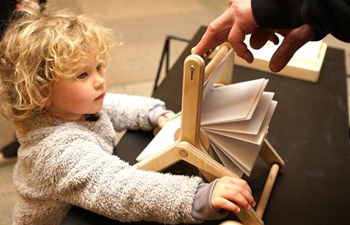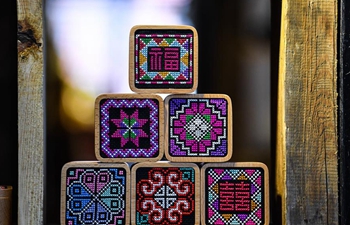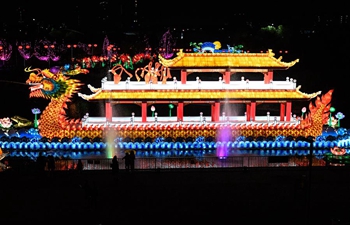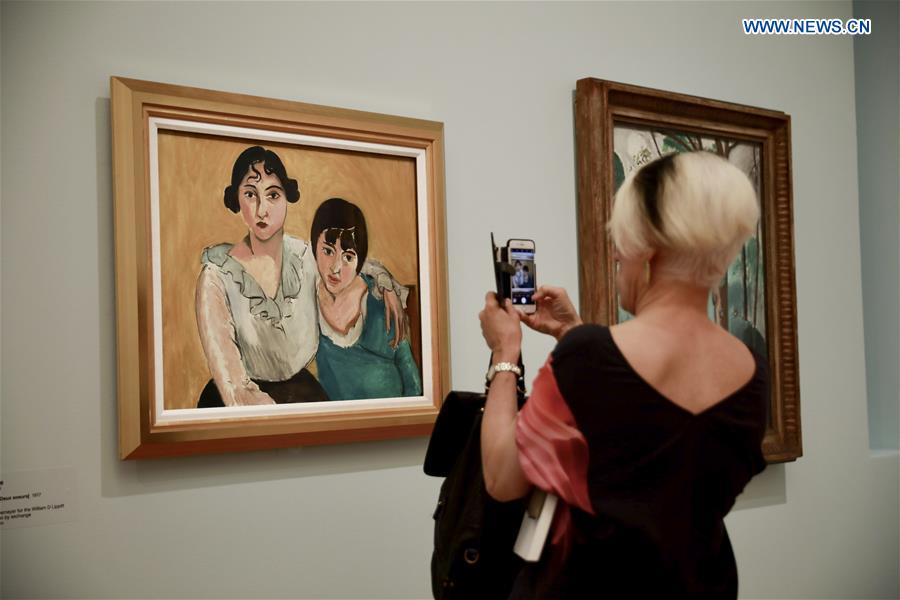
A woman takes photos at an exhibition, which explores the relationship between Picasso and Henri Matisse, at the National Gallery of Australia (NGA) in Canberra, Australia, Dec. 11, 2019. To open on Friday, it puts side by side more than 200 paintings, sculptures, drawings, prints, illustrated books and costumes of the pair, many of which are in the southern hemisphere for the first time. It will run until April 13 next year. (Photo by Chu Chen/Xinhua)
CANBERRA, Dec. 11 (Xinhua) -- Spanish artist Pablo Picasso once said: "Nobody ever looked at Matisse's work as thoroughly as I did. And he at mine."
An exhibition at the National Gallery of Australia (NGA) will explore the relationship between the two of history's greatest artistic rivals: Picasso and Henri Matisse.
Opening on Friday, it puts side by side more than 200 paintings, sculptures, drawings, prints, illustrated books and costumes of the pair, many of which are in the southern hemisphere for the first time. It will run until April 13 next year.
NGA director Nick Mitzevich said Matisse and Picasso were both radicals, taking art in a new direction.
"Each used the other as an artistic foil and drew inspiration from their rivalry, which spurred their creative brilliance to even greater heights," he said. "This creative friction over half a century of artistic rivalry turned the art world as we knew it on its head."
"They in a joint way made change dramatically in Western modern art at the beginning of the 20th century," said Jane Kinsman, NGA's head of international art and curator of the exhibition.
In an interview with Xinhua, she said that the pair began a relationship while they were poles apart in their age, in the styles, in their background, and yet then they came together. "First quite aggressively, because each one was trying to be the key avant-garde leader of the French art, but then they recognized each other's talents," she said.
"Over the years they started borrowing from each other, borrowing ideas about space, color, subject matter, everything," she said, pointing at Picasso's Woman from Arles as an example.
In the painting, Picasso employed a dynamic use of color including pink, blue, purple and green, red and orange against yellow background.
Matisse had criticized Picasso's cubism as static and monochrome. "This is completely a difference," said Kinsman. "It's full of life and full of color."
As comparison, the curator talked about Matisse's Olga Meerson.
"He started looking at the geometric forms of cubism, and he has toned down the palette," Kinsman said. "So that's a way of Matisse being influenced by Picasso."
The exhibition is not just about paintings.
Both artists worked with the Ballets Russes for costume designs. At the exhibition visitors could find boots, breeches and robes designed by them. Some robes from Matisse were of Chinese style as they were designed for the song of the nightingale, which was set in the Chinese imperial court.
In 1941 Matisse underwent surgery for colonic cancer. Unable to concentrate on painting, he started making papercuts, some of which were shown in the last room of the exhibition.
After he died in 1954, Picasso painted a series of homages to Matisse's love of the Middle East and North Africa, and adopted many of Matisse's favored motifs: the odalisque, the open window with a view to the outside world and Islamic decorative arts.
At the exit of the exhibition, the gallery printed the words of Matisse on the wall, which could best describe the relationship between the two masters. "When one of us dies, there will be some things the other will never be able to talk of with anyone else."

